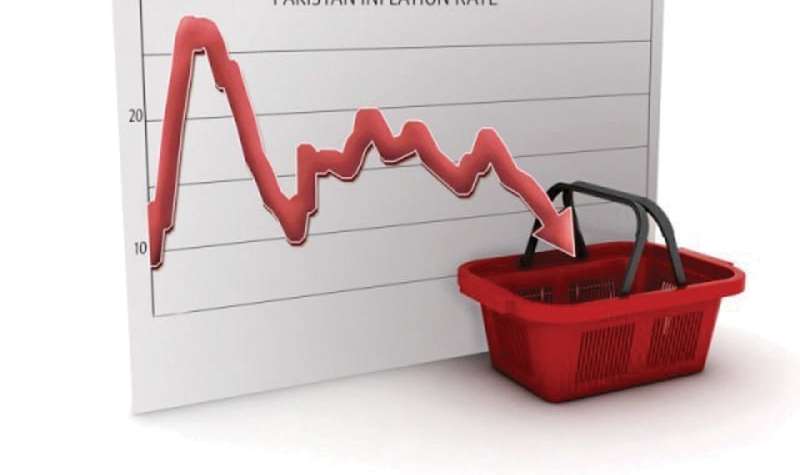In a positive turn of events, Ghana has witnessed a continuous decline in inflation for the third consecutive month, with the rate dropping to 35.2% in October.
This notable decrease of 2.9 percentage points from the previous month’s 38.1% is a promising sign for the country’s economic stability.
The Consumer Price Index (CPI) data, released by the Ghana Statistical Service on Tuesday, 14 November 2023, sheds light on the underlying dynamics of this downward trend.
The report Indicates that food inflation was recorded at 44.8%, while non-food inflation stood at 27.7%. These figures provide a comprehensive view of the inflationary pressures on both essential commodities and other sectors of the economy.
The decline in these rates sets the stage for Finance Minister Ken Ofori-Atta’s presentation of the 2024 Budget Statement and Economic Policy to Parliament on Wednesday, 15 November 2023.
Government Statistician Prof. Samuel Kobina Annim, in discussing the rates, emphasized the positive aspect of the declining inflation.
This trend not only instills confidence in the economic policies implemented but also reflects a concerted effort to address the challenges posed by inflationary pressures.
A Move Towards Economic Resilience and Stability
The consecutive decline In inflation rates is a testament to the effectiveness of the government’s strategies in managing economic challenges. It signifies a move towards economic resilience and stability, crucial for sustained growth.
As Ghana navigates through these economic waters, the focus on both food and non-food inflation rates becomes pivotal for crafting targeted policies.
Food inflation, at 44.8%, is a critical factor affecting the daily lives of citizens. It reflects the costs associated with essential goods, including staple foods.
The government’s ability to manage and control food inflation is crucial for ensuring the affordability and accessibility of basic necessities for the population. The declining trend in food inflation indicates positive strides in this direction, offering relief to households grappling with the rising costs of living.
On the non-food front, where inflation stood at 27.7%, the challenges and opportunities are diverse. Various sectors contribute to non-food inflation, including housing, transportation, and healthcare.
A lower non-food inflation rate suggests controlled price increases in these sectors, positively impacting businesses and consumers alike. It also creates a favorable environment for investment and economic expansion.
The timing of these developments is particularly noteworthy, aligning with the impending presentation of the 2024 Budget Statement and Economic Policy.
Finance Minister Ken Ofori-Atta now has the opportunity to build on this positive momentum and outline strategic initiatives that capitalize on the declining inflation trend.
The focus should be on sustaining this trajectory, promoting economic growth, and mitigating the impact on vulnerable segments of the population.
As Ghana charts its economic course, international investors are likely to take note of these positive indicators. A declining inflation trend enhances the country’s attractiveness for foreign investment, as it signals a stable economic environment.
This, in turn, can contribute to the influx of capital, technology, and expertise that are vital for long-term development.
Meanwhile, Ghana’s third consecutive decline in inflation, with rates dropping to 35.2% in October, is a significant achievement with far-reaching implications. It not only reflects the resilience of the Ghanaian economy but also presents a platform for informed policy decisions.
The government, led by Finance Minister Ken Ofori-Atta, must leverage this positive momentum to craft policies that foster sustained economic growth, address inflationary challenges, and prioritize the well-being of its citizens.
READ ALSO: 2024 Budget: Tackling Waste And Inefficiency























